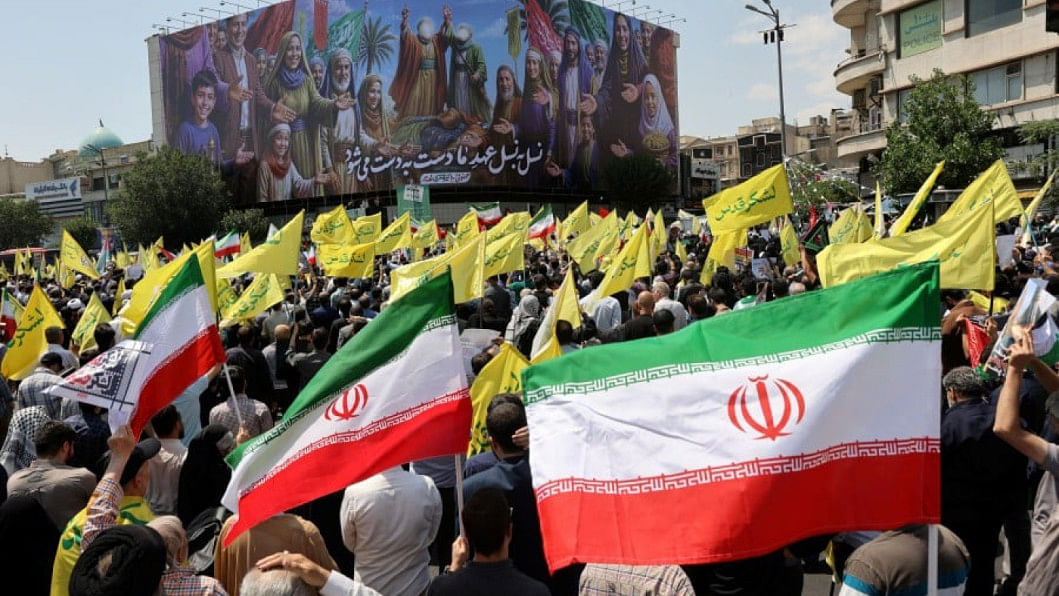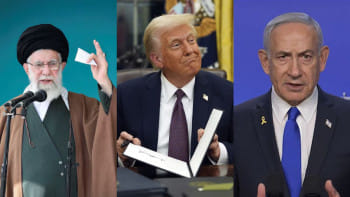Assassinations and aftershocks: A turning point in Middle Eastern geopolitics

The recent assassination of several top Iranian military and nuclear officials by Israel marks a significant moment in Middle Eastern geopolitics. These strikes, which reportedly included the killings of high-ranking figures such as Major General Muhammad Bagheri, the chief of staff of Iran's armed forces, and Hussein Salami, the head of the Islamic Revolutionary Guard Corps (IRGC), highlight Israel's renewed posture of deep penetration into Iran's sovereign intelligence and security apparatus.
While the shockwaves from these events may appear to signal an imminent regional escalation, the actual geopolitical calculus appears more restrained but nuanced. Tehran will likely galvanise its regional proxies while using the crisis as a strategic opportunity to push its nuclear agenda forward. In the long run, rather than prompting reconciliation or deterrence, the Israeli strikes may lead to the erosion of diplomatic engagement with Iran, particularly by the US, culminating in a possible renewal or tightening of sanctions.
Assassinations and their implications
The assassination of top Iranian officials—including individuals closely involved in Iran's military and nuclear spheres—sends an unmistakable message: Israel has both the intelligence capability and operational reach to strike deep inside Iranian territory. The presence of operatives or informants within Iran, capable of facilitating such precision, reveals a massive intelligence failure for Tehran.
These targeted killings are not just symbolic gestures but part of a calculated Israeli effort to cripple Iran's command-and-control structure. However, as discussed by Kenneth Katzman in The Warriors of Islam: Iran's Revolutionary Guard, the IRGC and Iran's nuclear command are built with redundancy and succession protocols. The deaths of key figures will not paralyse the system.
Iran's regime, having survived decades of covert warfare—from the Iran-Iraq War to the Stuxnet cyberattack—has developed institutional resilience. Suzanne Maloney in Iran's Political Economy Since the Revolution points out that the Iranian state thrives on managing crisis and portraying external aggression as justification for internal consolidation. Thus, these assassinations are likely to be framed by Tehran as acts of aggression by a Zionist-Western axis, reinforcing domestic legitimacy and strengthening the ideological narrative of resistance.
Tehran's calculated response
Despite the emotional and political weight of the recent assassinations, Iran's immediate military response is expected to be restrained. As Trita Parsi articulates in Treacherous Alliance: The Secret Dealings of Israel, Iran, and the United States, Iran rarely acts impulsively on the battlefield. Tehran's strategic depth lies in its alliances with regional proxies—Hezbollah in Lebanon, militias in Iraq, and the Houthis in Yemen—who offer plausible deniability while executing Tehran's geopolitical will.
Iran could activate and encourage its regional allies to exert pressure on Israeli interests through asymmetrical means. This strategy serves two purposes: it allows Iran to avoid an all-out war with a nuclear-armed state and demonstrates that it still commands influence over regional dynamics. As Efraim Karsh notes in Islamic Imperialism: A History, the Iranian model of regional warfare is one of sustained attrition and political influence, not head-on military confrontation.
Dismissing the spectre of regional escalation
Concerns about a region-wide conflagration in the aftermath of Israeli strikes on Iran, however, are not entirely misplaced. Yet, a closer look at Iran's historical playbook suggests that such fears may be overstated. Iran's foreign policy, particularly after the US withdrawal from the JCPOA (Joint Comprehensive Plan of Action), has leaned more towards strategic survival than reckless escalation. As Ray Takeyh highlights in Guardians of the Revolution, the Iranian regime—despite its revolutionary rhetoric—is fundamentally pragmatic when it comes to self-preservation.
Moreover, other regional actors such as Saudi Arabia and the UAE, who might once have been sympathetic to a coordinated anti-Iranian front, are now more inclined towards diplomacy and economic recovery rather than war. The Abraham Accords and growing trade across the Gulf reflect a regional fatigue with military confrontation, offering Iran a buffer against being cornered into a broader conflict.
Strategic gains in Iran's nuclear programme
Paradoxically, these attacks may serve as a catalyst for Iran to accelerate its nuclear ambitions under the guise of national sovereignty and defensive necessity. Iran's nuclear programme, as described by Gareth Porter in Manufactured Crisis, has long been shaped by perceived existential threats rather than purely offensive intentions. The recent killings will only reinforce this view within Tehran's elite circles.
Iran's leadership is likely to portray these assassinations as proof of the futility of negotiations and the West's duplicity. This argument will be used domestically to justify more aggressive enrichment activities and internationally to build a case for security parity in a hostile environment. As Ali Ansari outlines in Confronting Iran, Iran views its nuclear programme not only as a strategic deterrent but also as a pillar of national pride and independence.
With this renewed motivation, Iran may adopt more opaque policies, limit IAEA inspections, and disengage from technical cooperation frameworks. This scenario would severely hinder any future nuclear diplomacy, rendering previous negotiation efforts by the US and EU moot.
The death of dialogue and the rise of sanctions
In Washington and European capitals, the Israeli strikes are likely to reframe perceptions of Iran—not as a potential partner in containment, but as an uncontrollable adversary. This will have implications for future diplomatic engagements. The Trump administration, already grappling with domestic and international challenges, is unlikely to invest political capital in reviving talks that are seen as yielding little progress and high political risk.
As Barbara Slavin argues in Bitter Friends, Bosom Enemies, American policy towards Iran has historically oscillated between containment and engagement without a consistent strategy. The current climate points towards a return to pressure politics, possibly through renewed or extended sanctions targeting Iran's oil exports, banking sector, and military apparatus. These measures may not be entirely new but will be reinforced and expanded in scope to curb Iran's regional manoeuvring and nuclear pursuits.
The EU, though more inclined towards dialogue, may also tighten its financial and travel restrictions in solidarity with Israel and in response to mounting pressure from Washington. As Henry Kissinger once remarked in World Order, diplomacy without the credible threat of consequences often leads to stalemate. The West may now perceive coercion as the only viable instrument.
Syed Raiyan Amir is senior research associate at the KRF Center for Bangladesh and Global Affairs (CBGA). He can be reached at [email protected].
Views expressed in this article are the author's own.
Follow The Daily Star Opinion on Facebook for the latest opinions, commentaries and analyses by experts and professionals. To contribute your article or letter to The Daily Star Opinion, see our guidelines for submission.


 For all latest news, follow The Daily Star's Google News channel.
For all latest news, follow The Daily Star's Google News channel. 





Comments